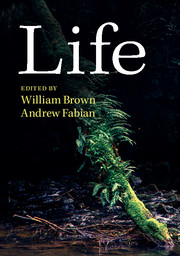Book contents
- Frontmatter
- Contents
- List of figures
- List of tables
- Notes on contributors
- Preface and acknowledgements
- 1 Life and death of a cell
- 2 The spark of life
- 3 From genomes to the diversity of life
- 4 Artificial life
- 5 Life in conflict: soldier, surgeon, photographer, fly*
- 6 Life in the ancient world*
- 7 Life in ruins*
- 8 The after-life*
- Index
- References
5 - Life in conflict: soldier, surgeon, photographer, fly*
Published online by Cambridge University Press: 05 September 2014
- Frontmatter
- Contents
- List of figures
- List of tables
- Notes on contributors
- Preface and acknowledgements
- 1 Life and death of a cell
- 2 The spark of life
- 3 From genomes to the diversity of life
- 4 Artificial life
- 5 Life in conflict: soldier, surgeon, photographer, fly*
- 6 Life in the ancient world*
- 7 Life in ruins*
- 8 The after-life*
- Index
- References
Summary
I drink not from mere joy in wine nor to scoff at faith – no, only to forget myself for a moment, that only do I want of intoxication, that alone.
Omar KhayyamRarely have conflicts created such rich pickings for the media as those in Iraq and Afghanistan. A combination of smartphones, tablets, social networking and YouTube has generated a magnificent, even if occasionally grisly, assortment of snapshots and factual documentaries, blogs and autobiographies. Some have been controversial – think of Abu Ghraib – but mostly they have been flattering in espousing the heroism of ISAF forces. This is particularly true of images of human anguish beamed to our television screens by embedded photojournalists, a handful of whom, like Tim Hetherington and Rémi Ochlik, paid the ultimate price.
Despite unprecedented access, the ensuing reportage often overlooks the surreality of war by not being explicit about the conflicting experiences it generates for those involved first-hand. War is surreal for the paradoxes it mobilizes. Prominent among these (and quite aside from the surreality of the physical setting) are the want of community and camaraderie and yet the experience of competition and rivalry; the conflicting emotions of pleasure and guilt; sharp contrasts between a sense of meaning and futility. While petty by comparison, similar paradoxes may be found in the organizations that dominate much of our working lives. It may just be the case that they are easier to identify in contexts that are exceptionally austere, and where getting the wrong end of the stick kills. These conflicting experiences cannot easily be reconciled. Rather, those affected often have little choice but to reconcile themselves to them as best they can.
- Type
- Chapter
- Information
- Life , pp. 84 - 95Publisher: Cambridge University PressPrint publication year: 2014
References
- 1
- Cited by

